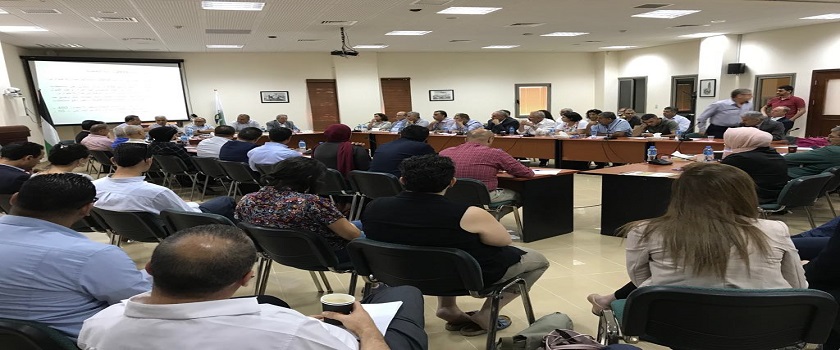director general of the budget: The government is waiting for the new Israeli government for resolving the financial crises.

Palestine Economy Portal
Masif Jamil a researcher in the Palestine Economic Policy Research Institute (MAS) pointed out in a research paper discussed in MAS yesterday that the compensation crisis which began in February this year after the Palestinian Authority refused to receive it after Israel's deduction of the transfers to the families of the prisoners ($ 138 million annually) Led the Palestinian Authority to suspend the budget of 2019 and replace it with an emergency budget until July 2019, which was funded, as planned, on local self-revenue and borrowing from local banks and to provide as much as possible the Arab safety net. The emergency budget is based on an austerity plan, specific financial limits and delays in paying the private sector.
Speaking about the financial crisis, Tariq Mustafa, director general of the budget in the Ministry of Finance that the Palestinian government is waiting for the formation of a new Israeli government to resolve the financial crisis.
He explained that the government received funding from local banks worth 284 million US dollars to finance the deficit in the financing gap after the agreement between the government and the Monetary Authority to finance the government budget by 470 million US dollars in six months (the first six months of the crisis) . The Palestinian government also borrowed from Qatar 250 million dollars over a period of ten months, and that the government did not put a budget for the year 2019 and it got a decision on the basis of Article 7 of the Budget Regulation Law, which provides for the disbursement of 1/12 of the previous year's budget, To reduce operating expenses by 20%, while continuing the current development expenditures without the issuance of new tenders.
He said that one of the proposed solutions that will be worked on in order to face the crisis in the coming months lies in Israel's abandonment of the hydrocarbon tax, and that the Palestinian government will collect it locally and benefit from it to alleviate the financial crisis.
In his turn, Omar Mahmoud Hashim, head of the Coordination Council for Private Sector Institutions, stressed the negative effects of halting the receipt of compensation funds. The reduction of salaries by 50% will reduce the income available to citizens, which in turn reflects negatively on trade and economic movement. It is necessary to rely on fixed revenues that allow decision makers to build development plans based on these revenues. It also called for an increase in the proportion of development expenditures on the expenditure side, which had a significant impact on improving the economic situation in the long term. He also called for the need to work on the formulation of regulations and laws that encourage investment and review the existing laws and regulations. This is in addition to the need to review the needs of the private sector, especially with regard to procedures related to tax collection.


